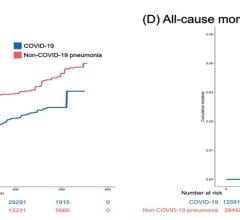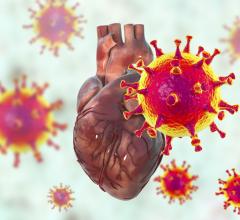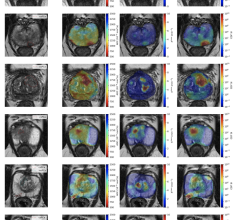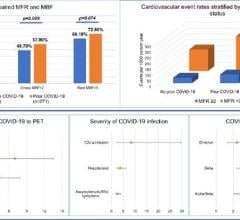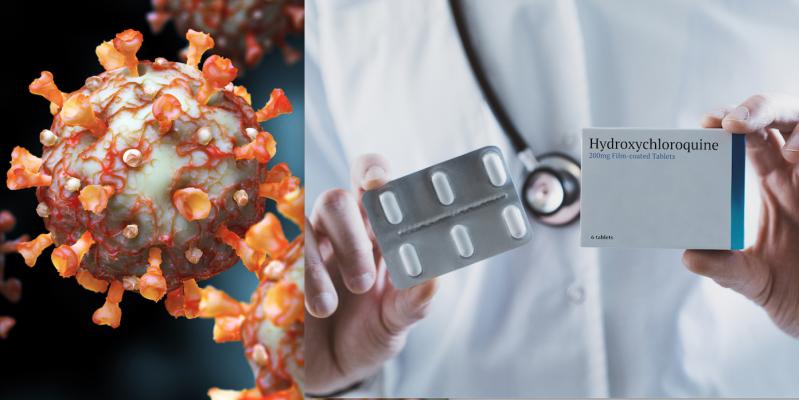
November 9, 2020 — A National Institutes of Health (NIH) clinical trial evaluating the safety and effectiveness of hydroxychloroquine for the treatment of adults with coronavirus (COVID-19, SARS-CoV-2) has formally concluded that the drug provides no clinical benefit to hospitalized patients.
Though found not to cause harm, early findings in June, when the trial was stopped, indicated that the drug was not improving outcomes in COVID-19 patients. Final data and analyses of the trial, which was funded by the National Heart, Lung, and Blood Institute (NHLBI), part of NIH, will were published online Nov. 9 in the Journal of the American Medical Association.[1]
The trial, called Outcomes Related to COVID-19 treated with Hydroxychloroquine among Inpatients with symptomatic Disease (ORCHID), began after lab studies and preliminary reports suggested that hydroxychloroquine might have promise in treating SARS-CoV-2, the virus that causes COVID-19. The drug is commonly used to treat malaria and rheumatic conditions like arthritis.
The Prevention and Early Treatment of Acute Lung Injury (PETAL) Clinical Trials Network of NHLBI started the trial in April at 34 hospitals across the United States and enrolled 479 of the expected 510 patients. By June, preliminary evidence indicated hydroxychloroquine was unlikely to offer any benefit. The study had 25 patients die who were on the drug and 25 who died in the placebo group.
“The finding that hydroxychloroquine is not effective for the treatment of COVID-19 was consistent across patient subgroups and for all evaluated outcomes, including clinical status, mortality, organ failures, duration of oxygen use, and hospital length of stay,” said Wesley Self, M.D., M.P.H., emergency medicine physician at Vanderbilt University Medical Center and PETAL Clinical Trials Network investigator who led the ORCHID trial. He also noted that the finding was consistent with similar trials in the United Kingdom and Brazil.
ORCHID Trial Stopped Early
NIH officials said the careful design, implementation and oversight of the study was key to its results, as well as the recommendation by a data and safety monitoring board (DSMB) to stop the trial early.
“Having a rigorously designed clinical trial that captured patient-centered, clinically meaningful outcomes was critical to reaching the unequivocal conclusions about the use of hydroxychloroquine in COVID-19. ORCHID shows that hydroxychloroquine does not improve clinical outcomes in hospitalized COVID-19 patients,” said James P. Kiley, Ph.D., director, Division of Lung Diseases at NHLBI. “We hope this clear result will help practitioners make informed treatment decisions and researchers continue their efforts pursuing other possible safe and effective treatments for patients suffering with this disease.”
The ORCHID trial enrolled participants between April 2 and June 19 who were a median age of 57. They included 290 Hispanic and Black participants and 212 female participants. All participants received clinical care as indicated for their condition. Participants were randomly assigned to a treatment group and received 10 doses of either hydroxychloroquine or a placebo over five days. Researchers then assessed each patient’s clinical status 14 days after being assigned to a treatment group. They used a seven-category scale ranging from one (death) to seven (discharged from the hospital and able to perform normal activities). Researchers also measured 12 additional outcomes, including death that occurred 28 days after the participants’ assignment to a treatment group.
At day 14, those who received hydroxychloroquine and those who received a placebo had a similar health status, with most participants in both groups discharged from the hospital and able to perform a range of activities. The number of participants in both treatment groups who died at day 14 was also similar. At day 28, 25 of 241 patients in the hydroxychloroquine group and 25 of 236 patients in the placebo group had died.
“Our diverse teams of clinicians and research staff worked nimbly, under extremely difficult circumstances to accomplish what NIH and the PETAL Network do best: ‘gold standard’ studies of important questions for patients suffering from life-threatening conditions,” said Samuel M. Brown, M.D., M.S., a critical care physician at Intermountain Healthcare and PETAL Network investigator who helped lead the trial. “While we hoped that hydroxychloroquine would help, even this is an important result as we work together to find effective treatments for COVID-19.”
As of Nov. 2, 2020, the Centers for Disease Control and Prevention (CDC) has reported more than 9.1 million cases of COVID-19 and more than 230,000 deaths in the United States. Many other randomized clinical trials are currently evaluating the effectiveness and safety of other agents versus a placebo in the urgent race for effective therapies to treat COVID-19.
Hydroxychloroquine Implicated in Dangerous Cardiac Arrhythmias
The combination of COVID-caused myocarditis along with hydroxychloroquine became an issue when it was used as a front line drug for a few months to treat COVID patients. It can cause life-threatening arrhythmias. The drug, along with azithromycin and chloroquine also used to treat COVID, all can cause QT prolongation. These drugs were used prolifically March through May to treat COVID patients, and several cardiology societies warned the first week of April in a joint statement there would likely be a rapid uptick in arrhythmia complications and possible deaths.[2]
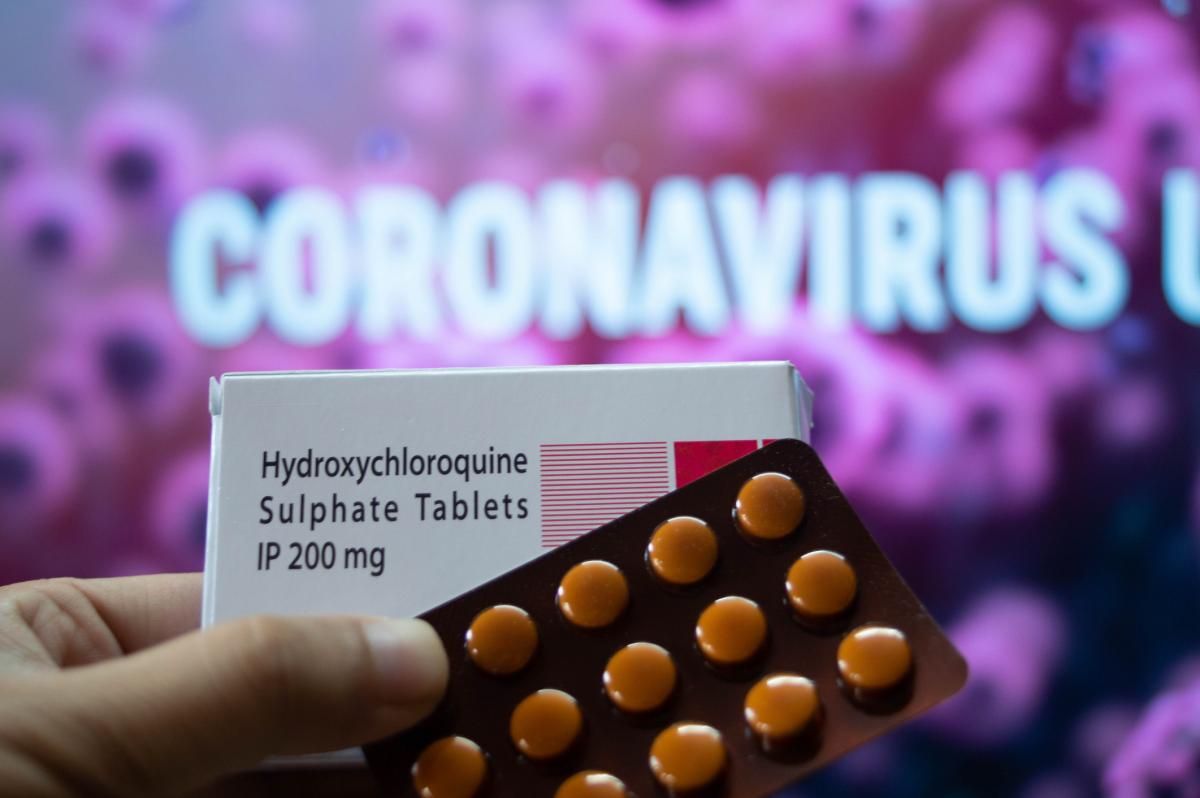
Not surprisingly, the three weeks later in late April, FDA announced it received numerous adverse event reports, including deaths, being filed related to these drugs being used to manage COVID patients. The FDA warned doctors there are serious potentially life-threatening heart rhythm side effects when using hydroxychloroquine and chloroquine in the off-label use to treat COVID-19 patients.
"All treatments have some potential downside, and both hydroxychloroquine and azithromycin are drugs we tell people not to take all the time in my business. But, in desperate times, people will take measures they feel are necessary to help patients," said Andrew D. Krahn, M.D., FHRS, head of the division of cardiology at St. Paul’s Hospital, and professor of medicine at the University of British Columbia, and vice president of the Heart Rhythm Society (HRS). He is an expert in long QT syndrome (LQTS).
He said it is the combination of underlying heart problems, the drugs bring used for COVID and possibly low potassium in patients that combine to cause severe arrhythmias.
Watch Krahn discuss more in the VIDEO: Why QT-prolongation Occurs in COVID-19 Patients on Hydroxychloroquine and Azithromycin.
The ORCHID trial was funded by NIH/NHLBI grants 3 U01 HL123009-06S1, U01HL123009, U01HL122998, U01HL123018, U01HL123023, U01HL123008, U01HL123031, U01HL123004, U01HL123027, U01HL123010, U01HL123033, U01HL122989, U01HL123022, and U01HL123020. Additionally, the research was supported by the National Center for Advancing Translational Sciences Awards UL1TR001102 and UL1TR002541.
The NHLBI is the global leader in conducting and supporting research in heart, lung, and blood diseases and sleep disorders that advances scientific knowledge, improves public health, and saves lives. For more information, visit https://www.nhlbi.nih.gov/.
The NIH, the nation's medical research agency, includes 27 Institutes and Centers and is a component of the U.S. Department of Health and Human Services. NIH is the primary federal agency conducting and supporting basic, clinical, and translational medical research, and is investigating the causes, treatments, and cures for both common and rare diseases. For more information about NIH and its programs, visit www.nih.gov.
Related Hydroxychloroquine Content:
COVID-19 Hydroxychloroquine Treatment Brings Prolonged QT Arrhythmia Issues
FDA Revokes Emergency Use Authorization for Chloroquine and Hydroxychloroquine for COVID-19
VIDEO: Overview of Hydroxychloroquine and FDA Warning in its use to Treat COVID-19 — Interview with Marianne Pop, Pharm.D.
FDA Reports of Deaths and Injuries From Use of Antimalarial hydroxychloroquine in COVID-19 Patients
VIDEO: Why QT-prolongation Occurs in COVID-19 Patients on Hydroxychloroquine and Azithromycin — Interview with Andrew D. Krahn, M.D.,
COVID-19 Therapy Drug Azithromycin May Increase Risk for Cardiac Events
The Cardiovascular Impact of COVID-19
Reference:

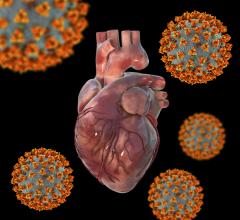
 March 20, 2024
March 20, 2024 

